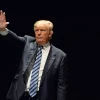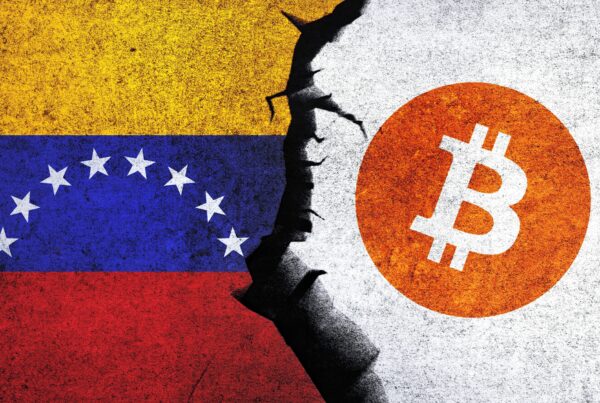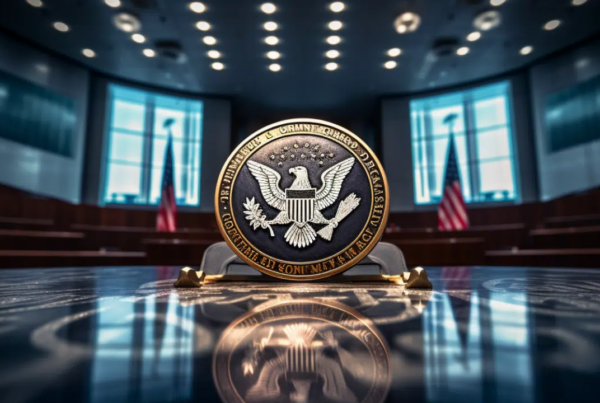Everyone has probably heard of non-fungible tokens, or NFTs, by now — whether they wanted to or not. There’s everything from some cool Stranger Things NFTs, to Bored Ape Yacht Club NFTs, to some projects that outright look like a drunken art minor in a pass/fail night class just threw a last-minute final together (and it still raised $70 million.)
But up until now, there hasn’t really been any major recourse against “bad” actors in the space getting away with some NFT shenanigans, because there hasn’t really been a regulatory body looking to test their authority to police NFTs.
On Wednesday, that all changed when the Department of Justice brought groundbreaking “insider trading” criminal charges against a former employee of the leading NFT marketplace OpenSea (more on why I put “insider trading” in quotes in a second.) At a maximum, the charges of wire fraud and money laundering carry a combined 40 years in prison.
It’s at this point in the story that I should disclose that I know the defendant in the DOJ’s case from our time in college. As such, I will recuse myself from going into too much detail recapping the allegations against him, but the case stems from certain purchases and sales he is alleged to have made during his time at OpenSea.
For background, OpenSea is like the New York Stock Exchange of NFTs. It’s a bonafide giant not even just by tech startup standards, but by most standards. Earlier this year, OpenSea raised another $300 million at a $13.3 billion valuation. That makes the four-year-old company larger than both Domino’s Pizza and social media platform Pinterest (and we all love pizzas and pins.)
As part of his job at OpenSea, the defendant (Nate Chastain) knew ahead of time which NFTs were set to be profiled on OpenSea’s site. Usually, that meant they would significantly spike in resale value. As documented in the DOJ’s indictment, Chastain is alleged to have bought multiple NFTs before they were spotlighted on the site and later resold them for a profit. As part of an internal investigation last year, Chastain stepped down from his position at OpenSea.
Now, importantly, while OpenSea might be very similar to the New York Stock Exchange in that it’s an important trading platform, the company is of course very different in that it doesn’t actually offer trading of stocks or securities. NFTs have not, thus far, been labeled securities by any governing regulatory body, including the SEC (which normally regulates anything that falls under the definition of a security.)
Why that matters here, and what makes the DOJ brining this particular case at this particular point in time, is that it looks to be a more pressing slam-dunk way for the DOJ to finally — in a very serious way — send a message to everyone in crypto that NFTs are finally going to get policed like they are stocks or securities.
Ok, Zack. Cool. So all we have here is the DOJ saying they are going to be doing their jobs? Boring.
No. Very much not boring.
Yeah, it’s kinda boring. You wrote about the SEC bringing a record $100 million fine against BlockFi for their crypto deposit accounts being “securities” before.
Yes, but this time the charges are criminal and the ramifications are much larger — the case could impact all NFTs. The suit is the first to bring criminal charges that try to define NFTs as securities.
Ok, fine, I’ll bite. Why’d you put “insider trading” in quotes then?
Here’s where the DOJ choosing this case gets interesting. If you look at the Southern District of New York’s press release, titled “Former Employee Of NFT Marketplace Charged In First Ever Digital Asset Insider Trading Scheme” and the subsequent five mentions of “insider” trading it becomes clear the DOJ is really trying to make that point stick.
There’s just one problem: look at the definition of “insider trading.” As Cornell’s Law School site puts it, “[i]nsider trading is the trading of a company’s stocks or other securities by individuals with access to confidential or non-public information about the company.”
Thus, the case kind of hinges on whether or not NFTs are, in fact, securities. And if you think about that, it’s kind of a win-win for the DOJ. Either they win the case, and there is now legal precedent that NFTs can be seen as securities and the crypto party is over. Or they lose, and there is public outrage that an “insider” got away profiting off “inside info” and regulators have standing to then define NFTs as securities.
Now, I’m not making any judgements about any actions that allegedly took place being morally right or wrong (I’ll leave that to you.) But, from a legal perspective it’s hard to overstate how big this case becomes.
Seeing as I am not a lawyer, I did reach out to one attorney who asked not to be named but has been focusing his attention on crypto-related cases now for his analysis to gut check my take. I was right.
“Whether or not he’s guilty is entirely dependent on whether or not NFTs are securities, and that decision has billions of dollars riding on it,” he said. “Either way, it looks like the most important case in the history of NFTs.”
To be fair, there have been other cases that have served as proverbial shots across the bow in regulating NFTs. There was the class action complaint against Dapper Labs and their NBA Top Shot NFTs. The DOJ has also previously brought conspiracy charges against NFT creators. But the emphasis here on “insider trading” really does seem to be grasping for more with some pretty huge implications.
The press release includes a quote from FBI Assistant Director-in-Charge Michael J. Driscoll that pretty much removes any doubt there:
“In this case, as alleged, Chastain launched an age-old scheme to commit insider trading by using his knowledge of confidential information to purchase dozens of NFTs in advance of them being featured on OpenSea’s homepage. With the emergence of any new investment tool, such as blockchain supported non-fungible tokens, there are those who will exploit vulnerabilities for their own gain. The FBI will continue to aggressively pursue actors who choose to manipulate the market in this way.”
Chastain pled not guilty to the charges he faces. But as lawyers point out, even accepting a plea deal would give the DOJ some legal precedent to hold over other would-be defendants. That could only help in the next case they bring that might try to also prove NFTs can be viewed as securities.
“That’s them saying this is a new thing, but we’re going to treat it as an age-old problem,” one lawyer told me.
So now, the fate of NFTs hangs in the balance, both legally and in the court of public opinion.
CURATED FROM:
Guzman, Z. (n.d.). The DOJ just hit nfts with the most important lawsuit in their short history. Crypto Uncomplicated. Retrieved June 3, 2022, from https://zackguzman.bulletin.com/the-doj-just-hit-nfts-with-the-most-important-lawsuit-in-their-short-history






